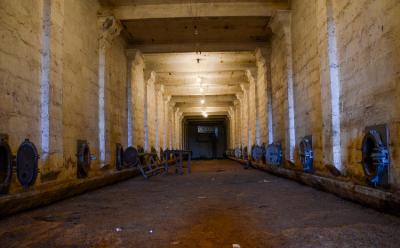Salto, Uruguay. On Tuesday, February 2, a meeting was held with local authorities to present the project that aims to recover the former Harriague Bodega, a Pioneer in wine producing in this part of Urugauy, founded around 1860 by a Basque born in Hazparne, Lapurdi, Pascual Harriague.
The mayor of Salto, Andres Lima, along with members of his cabinet, Secretary Fabian Bocchia; the Director of Culture Jorge de Souza, Events Director, Pablo Ferreira Pintos, welcomed a committee led by architect Ander De la Fuente Arana, Adela Soto and Luiz Zaldua representing the local Saltoko Euskaldun Talde Basque club as well as members of the Honorary Commission on Historic Heritage in Salto, the president Isidra Solari, accompanied by Dr. Ariel Villar, Professor Ofelia Piegas, and Mrs. Teresa Galina de Silva. From the Saltoko Euskaldunen Taldea they stressed the success of the meeting where the decision was made to begin work immediately, small actions that will pave the way for the implementation of the project.
Project U-riharri, Uruguay-Ribes-Harriague
The name of the project not only invokes the name of the country that sheltered by immigrants, but also the last names of these great entrepreneurs and left their imprint and contribution in the “golden age” of the city of Salto. Saturnino Ribes, was a key man in the history of river navigation in the countries of the Plata and Pascual Harriague, was the founder of the bodega that was the pride of the region and the country for over a half a century.
Unfortunately, since the winery stopped working in 1910, its facilities have deteriorated until finally becoming ruins practically. The venue still works as a city reservoir, activity that has further attacked the maintenance of what was a winery building in its day. But locals are unaware of the dep significance of this place, its history and its potential future, and that is why an initiative led by the Saltoko Euskaldunen Taldea presented the local government with a plan for its restoration. The project was designed and presented by Mayor Andres Lima by the Basque architect Ander De la Fuente Arana, representative of the UNESCO Chair of Cultural Landscapes and Heritage at the University of the Basque Country.
According to the architect, at a meeting with the Basque club and EuskalKultura.com, the recovery of the Harriague Bodega is part of a comprehensive plan, which will also include the intervention in the context in which it is located. The goal, in the words of the expert, is not to restore the winery as such, not only make it pretty so you can visit it, but the plan is “a little more ambitious, which means a lot more ambitious economically as well.”
“Among the possibilities we have in mind, without giving up the possibility of making it a museum, including using part of it for a Basque clubhouse on the grounds of the winery, the idea is to make a small payment, that is to say, a series of vineyards where several types of grapes could be grown, and in these try different varieties at a small scale, copying the family model, to eventually to see if the ground adapts, while testing the response of the public, and why not try different qualities, and if one is good, sell it". “One of the variety to work would be the Tannat that we already know is successful here. In regards to production, after a study, we have come to the conclusion that the best would be to try txakoli, a drink that is now begin developed around the world, that is looking for markets…of course, we can’t guarantee with any certainty that it will work, but experts will take a look at this to see if it could be adapted. In the beginning with thought that the condition here and those in the Basque Country are very similar.”
“Also the History of Ribes, being first Harriague's employee and later constructing his own shipyard is also very important. Related to this, the project includes generating cultural activities along with the Rowing Club, for example, to try to involve the Albaola initiative (from Pasaia in the Basque Country) to create a joint activity in honor of Ribes and some proposal a little more entertaining like the estropadak racing. Ultimately, the idea is to mix traditions, culture and heritage with current reality. Not to retrieve the heritage as a monument but as spirit.”
Next steps
After the successful meeting with the local mayor, the local government has committed itself to immediately begin a series of low-cost small interventions including, the creation of a private entrance for the bodega, cleaning the grounds and infrastructure details. According to the Saltoko Euskaldunen Taldea, “The goal now is to educate the locals that in two years the winery will be ready for everyone to enjoy.” The architect De la Fuente himself, summarized the idea in his talk: “The Harriague bodega isn’t just a treasure for the Basques, but it is the heritage of all of Salto and Uruguay.”




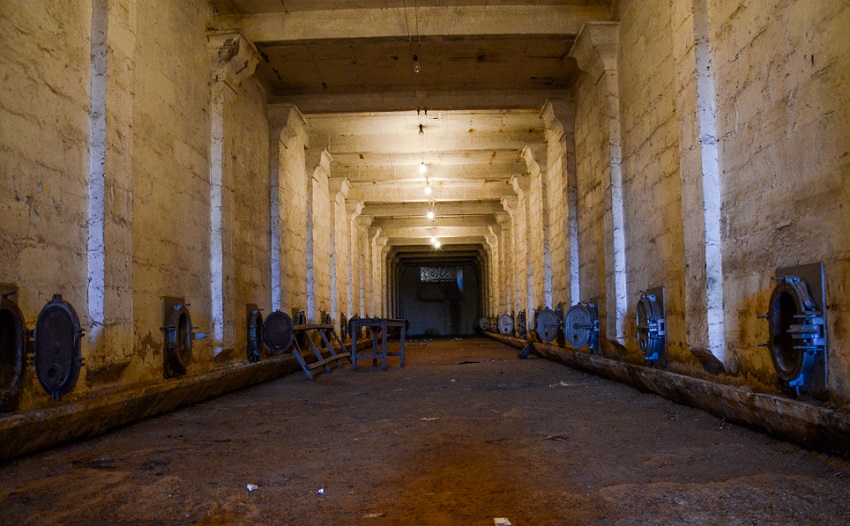



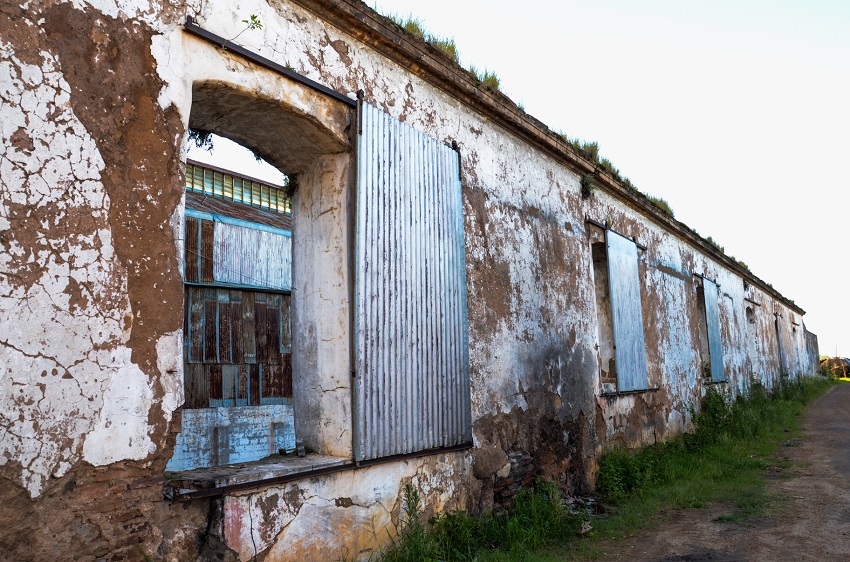
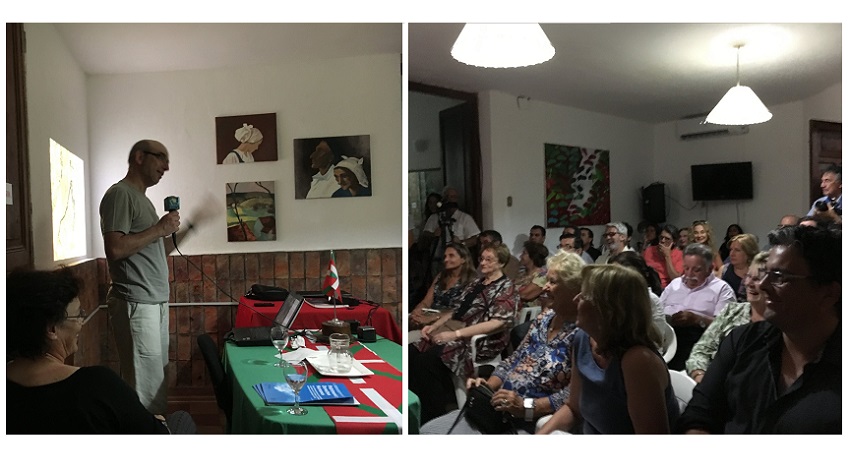
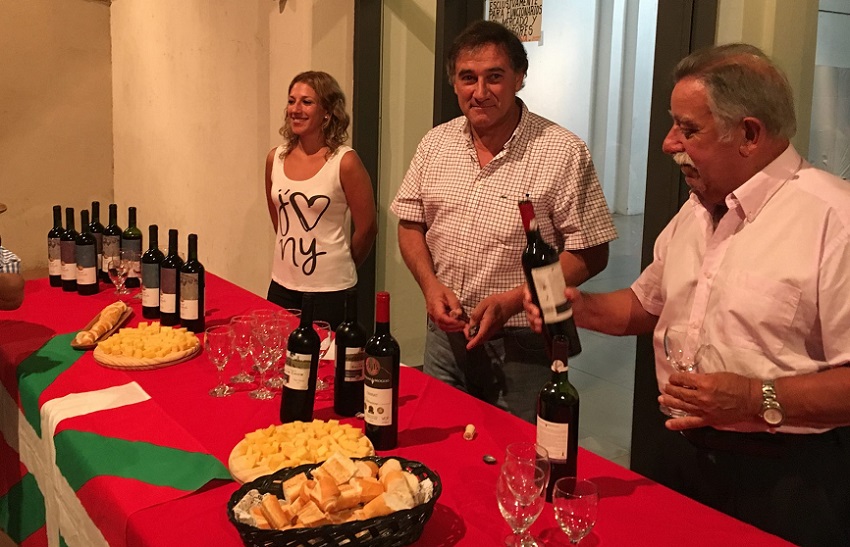
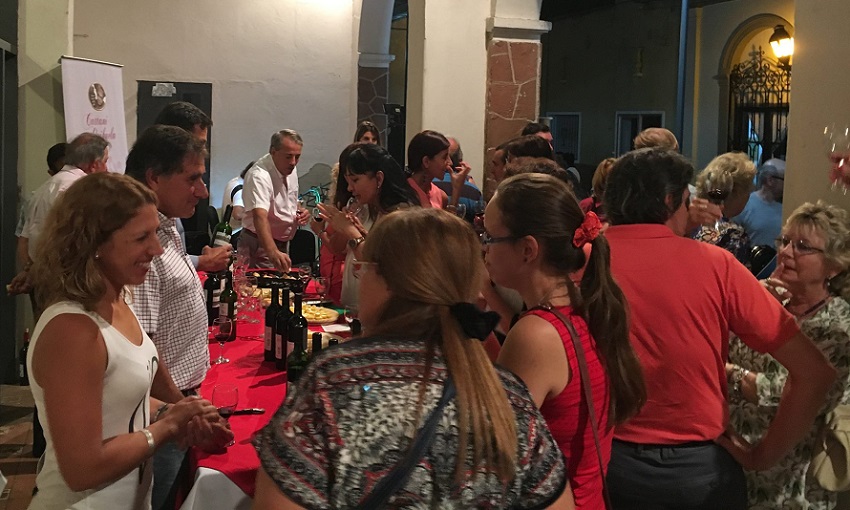
 Send to a friend
Send to a friend Add comment
Add comment

